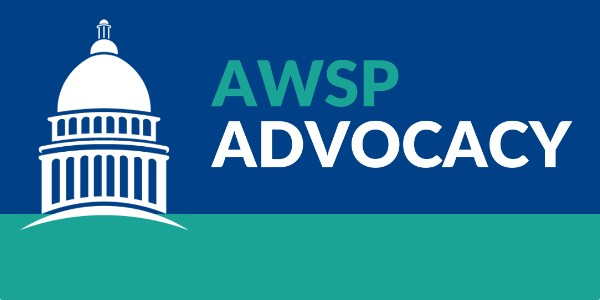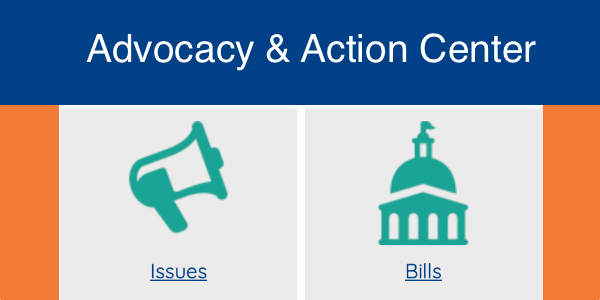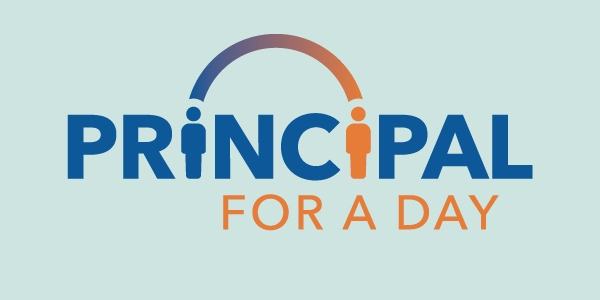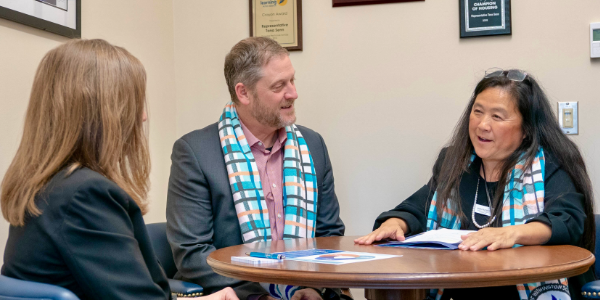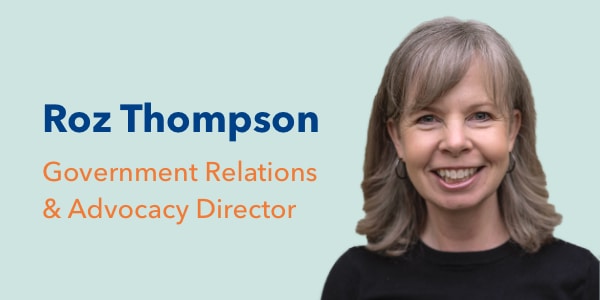Debates and floor action continue as both chambers rush to pass house of origin legislation by the end of February 13. The work of all committees will then resume, again, dealing with bills that have passed the opposite house. Some committees are already hard at work.
The status of bills changes constantly, so the summaries below are just as they were when this report was written.
A reminder that regardless of deadlines, bills can be ruled as ‘necessary to implement the budget’ so can be revived under that justification which can be arbitrary at times.
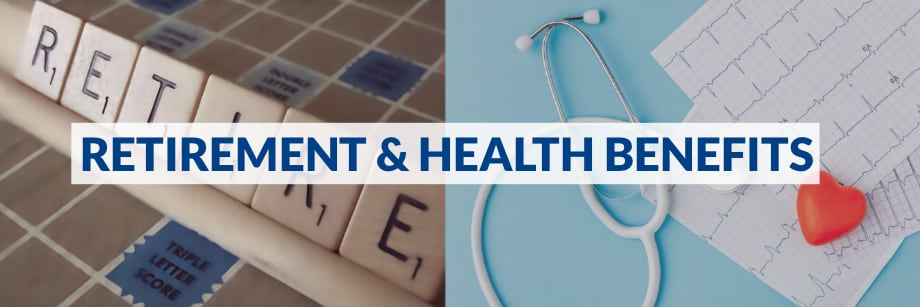
The 68th installment of the FAST AND FURIOUS franchise continues…
Debates and floor action continue as both chambers rush to pass house of origin legislation by the end of February 13. The work of all committees will then resume, again, dealing with bills that have passed the opposite house. Some committees are already hard at work.
The status of bills changes constantly, so the summaries below are just as they were when this report was written.
A reminder that regardless of deadlines, bills can be ruled as ‘necessary to implement the budget’ so can be revived under that justification which can be arbitrary at times.
Retirement Related Proposals
SHB 1105: Requiring public agencies to provide notice for public comment that includes the last date by which such public comment must be submitted.
Comment: This bill requires public agency notices for public comment to include the last date by which public comment must be submitted. • • Establishes penalties for agencies failing to provide the notice.
It passed the House 98/0 and is before Senate Government and Elections.
SHB 1985: Providing a benefit increase to certain retirees of the public employees' retirement system plan 1 and the teachers' retirement system plan 1.
Comment: This bill passed House 97/0 and will be sent to Senate Ways and Means. This bill would provide an ad-hoc 3% increase in 2024 not to exceed $110/month for TRS1/PERS1 Plan retirees.
HB 2481: Waiving health benefit premiums in the public employees' benefits board.
Comment: This is a late entry into Introductions. It is intended to replace HB 2013 mentioned above. It would waive, as the title suggests, the health benefit premium of the deceased during the month of one’s death. The survivors, if covered by insurance, would still pay the balance of the premium.
It is in House Rules awaiting action.
Other Areas of Potential Fiscal Impact (and often unfunded) to Districts
Below are selected titles and brief summaries of proposed bills that may have potential impact to the business operations of districts. The TWIO has a more extensive list and explanation.
E2SHB 1618: Concerning the statute of limitations for childhood sexual abuse.
Comment: It eliminates the statute of limitations for recovery of damages as a result of childhood sexual abuse for all intentional actions occurring after June 6, 2024.
The bill as amended passed the House 93/0/5. It had a public hearing before the Senate Committee on Law and Justice Jan. 30th.
SHB 1905 - Including protected classes in the Washington Equal Pay and Opportunities Act.
Comment: This bill amends the Equal Pay and Opportunities Act to prohibit an employer from discriminating in compensation and career advancement opportunities against similarly employed employees based on the employee's age, sex, marital status, sexual orientation, race, creed, color, national origin, citizenship or immigration status, honorably discharged veteran or military status, or the presence of any sensory, mental, or physical disability or the use of a trained dog guide or service animal by a person with a disability.
This bill is in House Rules awaiting action. Its companion, SSB 5894, is in Senate Rules awaiting movement to the floor for action.
Comment: The Senate bill extends the prohibitions on discrimination in wages and career advancement opportunities and the remedies to a person's membership in a protected class. • Provides that protected class means a person's age, sex, marital status, sexual orientation, race, creed, color, national origin, citizenship or immigration status, honorably discharged veteran or military status, or the presence of any sensory, mental, or physical disability or the use of a trained guide dog or service animal by a person with a disability.
HB 1927: Reducing the number of days that a worker's temporary total disability must continue to receive industrial insurance compensation for the day of an injury and the three-day period following the injury.
Comment: It reduces the number of days – from 14 to 7 – that a temporary total disability must continue to receive workers' compensation time loss benefits for the first three days following the injury.
It passed the House 60/37 and is before Senate Labor and Commerce Committee.
HB 2044: An act relating to standardizing limitations on voter-approved property tax levies.
Comment: This bill removes the restriction on levy lid lift funds supplanting existing funds.
This bill is in House Rules awaiting further movement.
HB 2058: Increasing student access to free meals served at public schools.
Comment: TWIO has covered this previously. There is no fiscal note to date, although press reports that the state’s cost will be in excess of $80 million dollars. It is indeterminate what other local school district unfunded costs will be.
This bill was moved to Appropriations and is awaiting scheduling. This is an example of a bill that may be ‘necessary to implement the budget’ so may still be alive. Its purpose has support among members.
SHB 2127 - 2023-24: Concerning workers' compensation incentives to return to work.
Comment: This bill modifies certain return to work policies and reimbursement amounts under the workers' compensation program. • Increases the maximum amounts of reimbursements paid to employers participating in the Stay at Work Program and Preferred Worker Program by the Department of Labor and Industries (L&I). • Increases the maximum amount paid to qualifying employers for job modification costs by L&I. • Allows L&I to authorize payments for basic skills development for qualifying injured workers.
This bill passed the House 97/0. A public hearing is scheduled for Feb. 15th before Senate Labor and Commerce.
HB 2246: Concerning vacation leave accrual for state employees.
Comment: This bill increases the annual cap on the accrual of unused vacation leave for state employees from 240 hours to 280 hours.
This bill is before House Rules awaiting action.
SHB 2381: Increasing eligibility for economy and efficiency flexible school calendar waivers.
Comment: This bill authorizes the Superintendent of Public Instruction to grant waivers to reduce the minimum number of school days required in a school year to school districts with fewer than 1,000 students.
This bill passed the House 97/0 and will likely be assigned to Senate Education.
SB 5344: Establishing a public-school revolving fund.
Comment: This bill establishes the Public-School Revolving Fund in the State Treasury for the purpose of issuing low-interest or interest-free loans to qualifying school districts for capital projects. • Establishes the Public-School Revolving Fund Board to administer loans from the fund.
The bill is in House Rules with little expected movement. It is likely ‘dead.’
E2SSB 5670: Permitting 10th grade students to participate in running start in online settings.
Comment: This bill permits rising 11th grade students to participate in Running Start courses during the summer academic term. • Requires that rising 11th grade Running Start students take no more than ten quarter credits per summer academic term, or the semester equivalent. • Requires school districts to provide information about Running Start enrollment opportunities during the summer academic term.
This bill passed Senate 48/0 and is scheduled for a public hearing Feb. 15th in House Education. The fiscal note is not available, but this represents a cost to districts and an added administrative burden.
SB 5777: Concerning unemployment insurance benefits for striking or lockout workers.
Comment: Deletes a provision that disqualifies employees in a multi-employer bargaining unit from unemployment insurance benefits when the employees have been locked out following a strike against the employers in the bargaining unit.
This bill is on the Senate calendar awaiting action. Its companion (SHB 1893) is in House Rules awaiting action. It is a change from the Senate bill and specifies that the provision disqualifying a worker for unemployment insurance (UI) benefits based on a labor strike terminates on the second Sunday following the first day of the strike, thereby allowing those workers to access UI benefits following that time period and the waiting week. • Removes the provision disqualifying a worker for UI benefits based on an employer-initiated lockout resulting from a strike against another employer in a multi-employer bargaining unit.
SB 5789: Concerning the sales and use tax for school construction assistance program capital projects.
Comment: This bill changes the School Construction Assistance Program formula so that the state will pay for the full sales and use tax levied on all costs chargeable to a school construction project.
This bill is on the floor calendar awaiting action.
ESB 5790: An act relating to bleeding control equipment in schools.
Comment: This bill requires school districts, charter schools, and state-tribal education compact schools to maintain and make available certain bleeding control equipment and acquire and maintain at least one semiautomatic external defibrillator on each school campus beginning in the 2026-27 school year. • Specifies that schools must have a certain number of employees trained to use the bleeding control equipment. • Directs school districts to comply with existing requirements regarding semiautomatic external defibrillators.
This bill passed the Senate 47/0. It is scheduled for a public hearing on Feb. 15th before House Education.
ESSB 5793: Concerning paid sick leave.
Comment: This bill allows an employee or transportation network company driver to use paid sick leave when their child's school or place of care is closed after the declaration of an emergency. • Modifies the definition of family member for the purpose of using paid sick leave to include any individual who regularly resides in the employee's home or where the relationship creates an expectation the employee care for the person, and that individual depends on the employee for care, except it does not include an individual who simply resides in the same home with no expectation the employee care for the individual. • • Provides that a child also includes a child's spouse. Requires the Department of Labor and Industries to develop materials and conduct outreach to inform individuals and businesses about the new provisions of the act.
It passed the Senate 28/21 and is scheduled for public hearing before House Labor and Workforce Standards on Feb. 14th, and further scheduled for executive session on Fe. 16th. Its companion, (SHB 1991) has been moved to the floor calendar. The substitute expands the definition of "family member" in Washington's Paid Sick Leave Law, allowing employees to use paid sick leave to care for additional specified persons experiencing a mental or physical illness, injury, or health condition, or needing medical diagnosis, treatment, or preventative care. • Allows an employee to use paid sick leave when the employee's child's school or place of care has been closed due to a public emergency.
SSB 5804: Concerning opioid overdose reversal medication in public schools.
Comment: This bill requires all school districts, charter schools, and state-tribal education compact schools, not just those with 2000 or more students, to obtain and maintain at least one set of opioid overdose reversal medication doses in each of the public schools and to adopt a related policy.
It passed the Senate 49/0 and is scheduled for a public hearing Feb. 15th before House Education.
ESB 5824: Concerning the dissolution of libraries and library districts.
Comment: This bill Increases the signature threshold for filing petitions to dissolve libraries from 100 taxpayers to 25 percent of eligible voters in the district. • Increases the signature threshold for filing petitions to dissolve library districts from 10 percent of voters residing outside of incorporated cities or towns to 25 percent of eligible voters in the district. • Expands voter eligibility to allow all qualified electors of a library district to participate in a vote on propositions for library district dissolution.
The bill passed the Senate 49/0 and has been sent to the House State Government and Tribal Relations.
SSB 5873 - 2023-24
Providing adequate and predictable student transportation.
Comment: This bill, subject to budget appropriations, requires the Office of the Superintendent of Public Instruction (OSPI) to provide an analysis of school district transportation costs and allocations to the Legislature by June 1, 2027. • Requires OSPI to develop a transparent, predictable, and comprehensive student transportation funding model that addresses the diverse needs of students and the unique characteristics of school districts. • Provides additional funding in the amount of $400 per student for students that require special transportation due to the requirements of the McKinney Vento Homeless Assistance Act. • Provides that school districts may only enter into, renew, or extend pupil transportation services contracts with private nongovernmental entities that provide employee health and retirement benefits comparable to those received by school employees
This bill has been moved to the Senate calendar awaiting further action.
SB 5883: Concerning the burden of proof for special education due process hearings.
Comment. This bill provides that a school district has the burden of proof when it is a party to a special education due process hearing. • Creates an exception to this burden of proof requirement in circumstances when a parent seeks reimbursement for a unilateral parental placement.
This bill passed the Senate 48/0. It is scheduled for a public hearing on Feb. 14th before House Education.
SSB 6031: Modifying the student transportation allocation to accommodate multiple vehicle types for transporting students.
Comment: This bill provides that the pupil transportation funding formula may not be construed to mandate the type of vehicle used for pupil transportation and encourages districts to use the vehicle type that the district deems to be the safest and most cost-effective. • Requires district-owned cars to be included in the overall transportation allocation rather than being subject to a private reimbursement rate and requires additional district-owned ridership data to be considered. • Requires school districts to report the number of miles driven per vehicle type when reporting transportation data to the Office of the Superintendent of Public Instruction. • Expands the school bus purchase and reimbursement process to include passenger vans used in lieu of school buses.
This bill is on the Senate calendar awaiting further action.
Fred Yancey
The Nexus Group LLC



